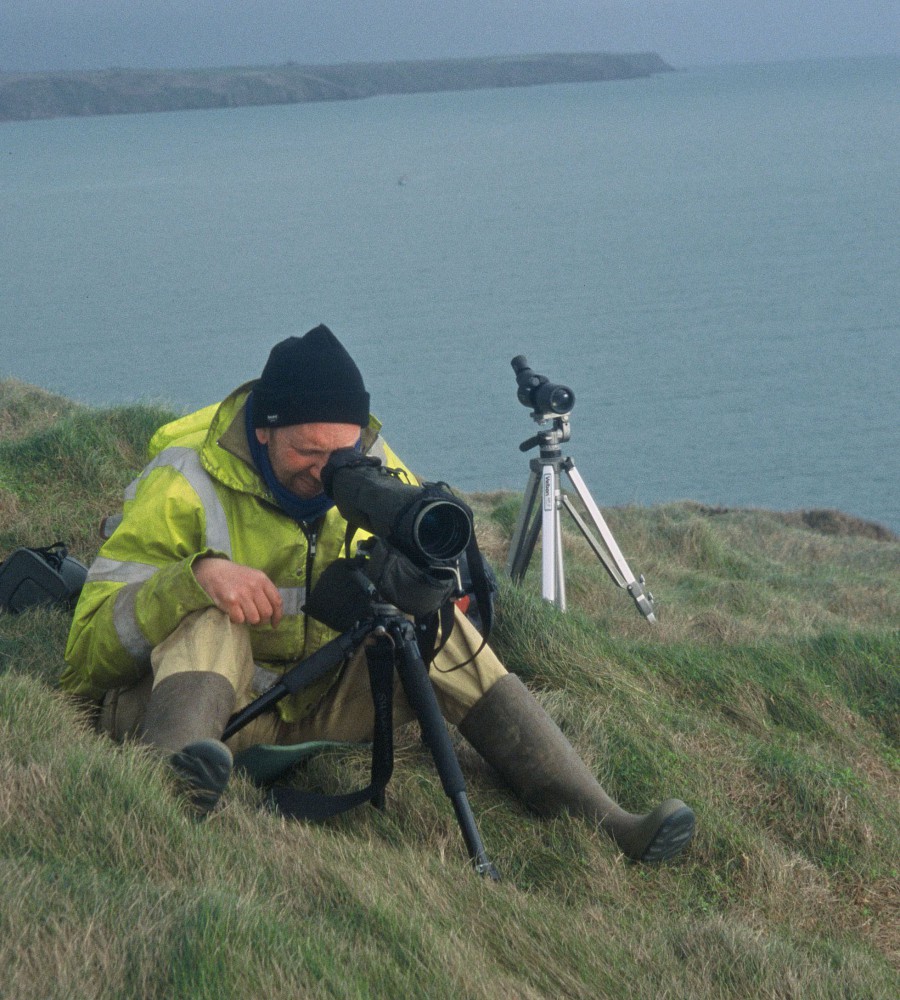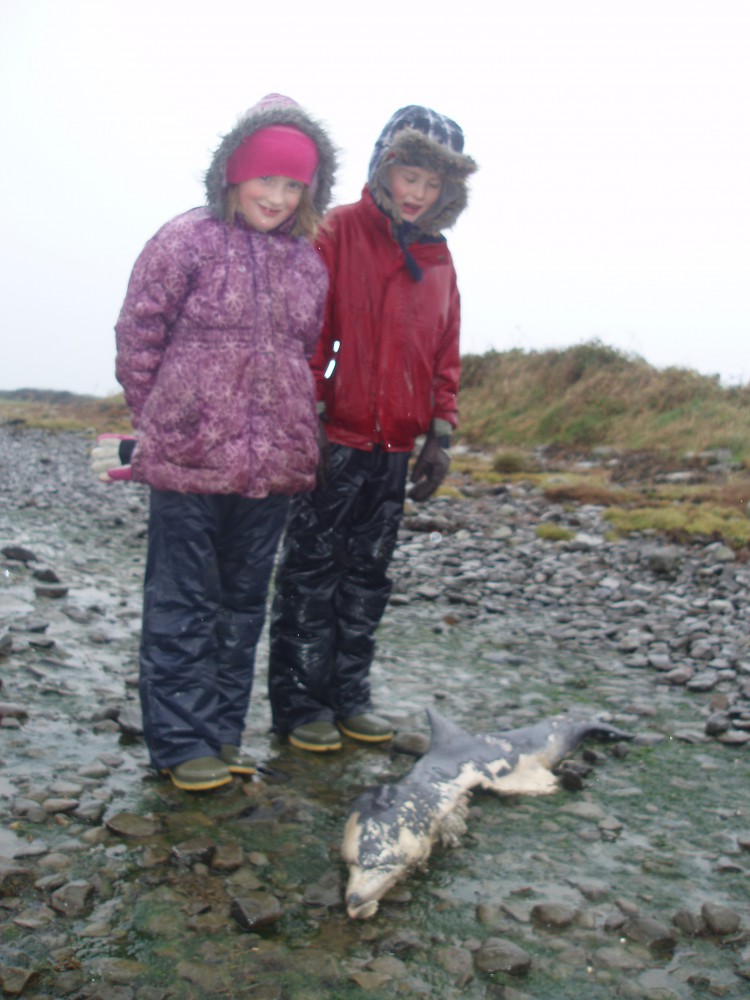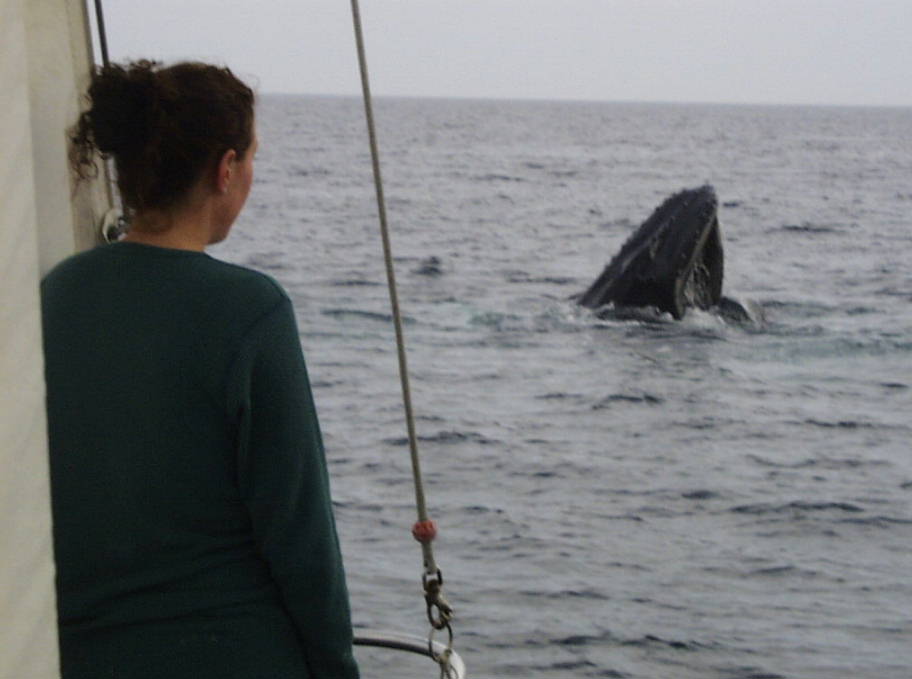The IWDG whale and dolphin recording schemes are the backbone of the IWDG. This is the source of information on what occurs where and when and identifies unusual stranding events, such as the current Cuvier's beaked whale UME (Unusual Mortality Event). The IWDG rely on a network of recorders to provide these data; to visit, identify, measure and sex stranded animals and send in details of their sightings.
In order to ensure the IWDG dataset is reliable and can confidently be used to support conservation initiatives and policies, identify threats and support marine tourism, the data has to be checked and validated to ensure for example that the sighting really was a fin whale and not a minke, or the decomposed caracass in Co. Donegal is another Cuvier's beaked whale. This is "Citizen Science" defined as “the collection and analysis of data relating to the natural world by members of the general public, typically as part of a collaborative project with professional scientists”.
IWDG recording schemes are an excellent example of what can be achieved through "citizen science". IWDG's philosophy is that we don't own these records, they are owned by the data collector, but we can add value to each record by adding it to other records to identify patterns and trends. Once IWDG has validated each record it is added to the relevant database. To date almost 30,000 sighting and 3,845 stranding records are uploaded onto the two recording schemes.



In the past access to all these records were through the IWDG website, but after the site was hacked and all the data corrupted the IWDG have had to start the painful process of rebuilding the site and the database. To coincide with the 25th meeting of GBIF (Global Biodiversity Information Facility) being hosted by the National Biodiversity Data Centre and its public symposium on Biodiversity Loss in a changing world: local data, global action the IWDG are pleased to announce that the IWDG dataset is back online.
Through www.iwdg.ie, you can access the last 12 months sighting and stranding data. You can search by species, recorder, date and location and all sightings can be mapped. We restricted the search to the last 12 months as through consultation with our members we understood that most wanted to see what was in their area, but were less interested in the inter-annual trends.
http://www.iwdg.ie/browsers/sightings.php
http://www.iwdg.ie/browsers/strandings.php
If data are required for long-term projects, undergrad and postgrad or just interested members than it is more efficient for IWDG to carry out a data export and provide records on an excel spreadsheet. This can be easily achieved by writing to enquiries@iwdg.ie.
So we hope this new facility will be useful and of interest. Our recording schemes receive very little funding support. The Sighting Scheme gets no funding and currently the Stranding Scheme receives grant support of €10,000 from the NPWS, but it is not guaranteed and depends on other NPWS funding obligations. IWDG are committed to maintaining these recording schemes in the long term, as its only with time that we can identify trends; whether they are new threats to whale and dolphin populations or changing distributions driven by climate change and other large scale events.
These recording schemes have been ran and supported by Pádraig Whooley and Mick O'Connell on behalf of the IWDG for over 20 years, for which both of them should be extremely proud of what they have achieved and their legacy. We have some of the most robust data in Europe to address key environmental issues and meet legal obligations. None of this would be possible without the IWDG members and non-members who go to great lengths to report strandings and sightings and take our calls to head out to the beaches and headlands all around Ireland to collect another data point. To them we offer our respect and thanks.
Dr Simon Berrow
Chief Science Officer and CEO
Simon will be presenting "Mobilising citizen science for marine recording" at the GBIF public symposium on Thursday 18th October in Kilkenny.
Cover Image: Andrew Malcolm, IWDG scanning the seas for whales off West Waterford from Ram Head, Ardmore, Co. Waterford during an Effort watch.
